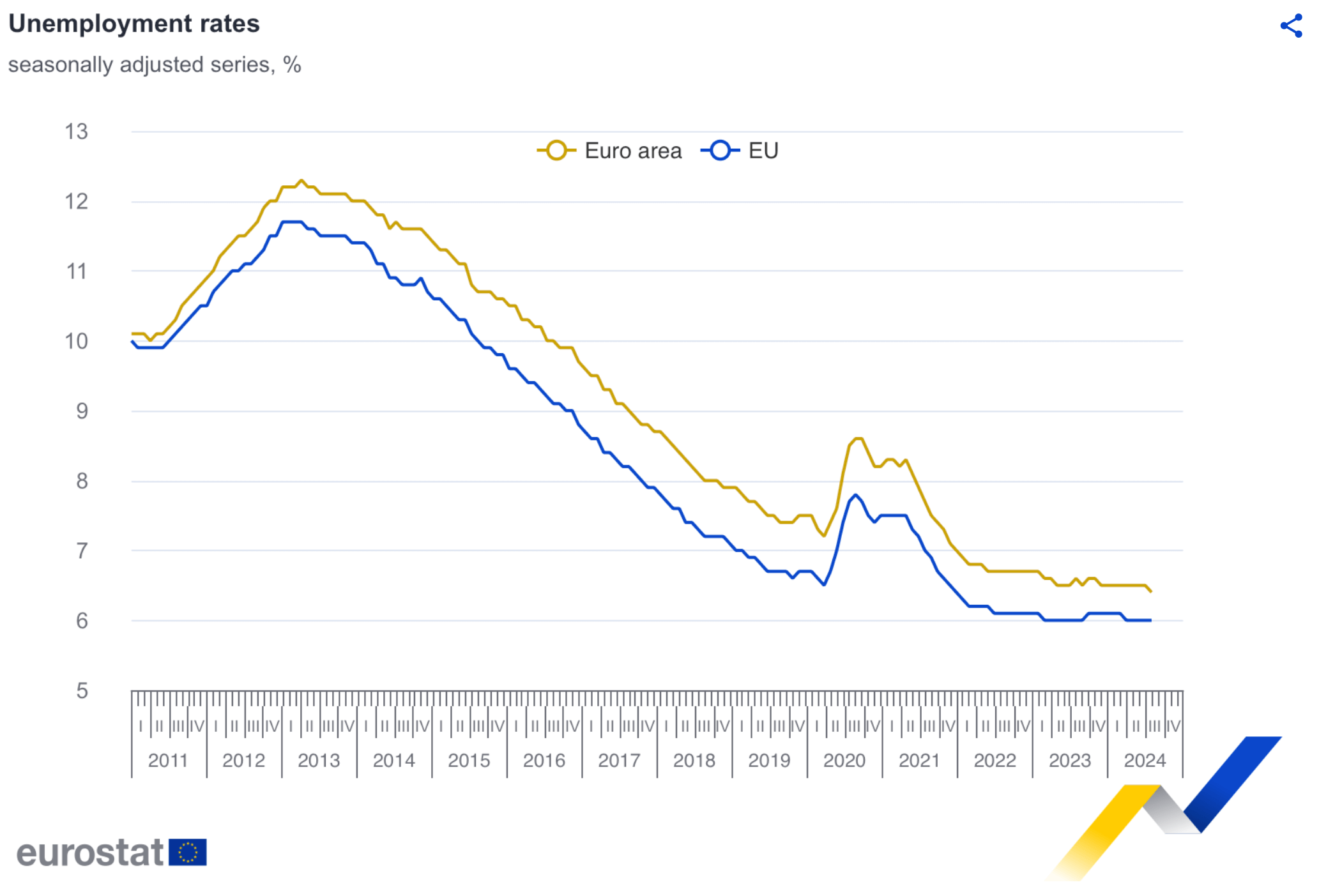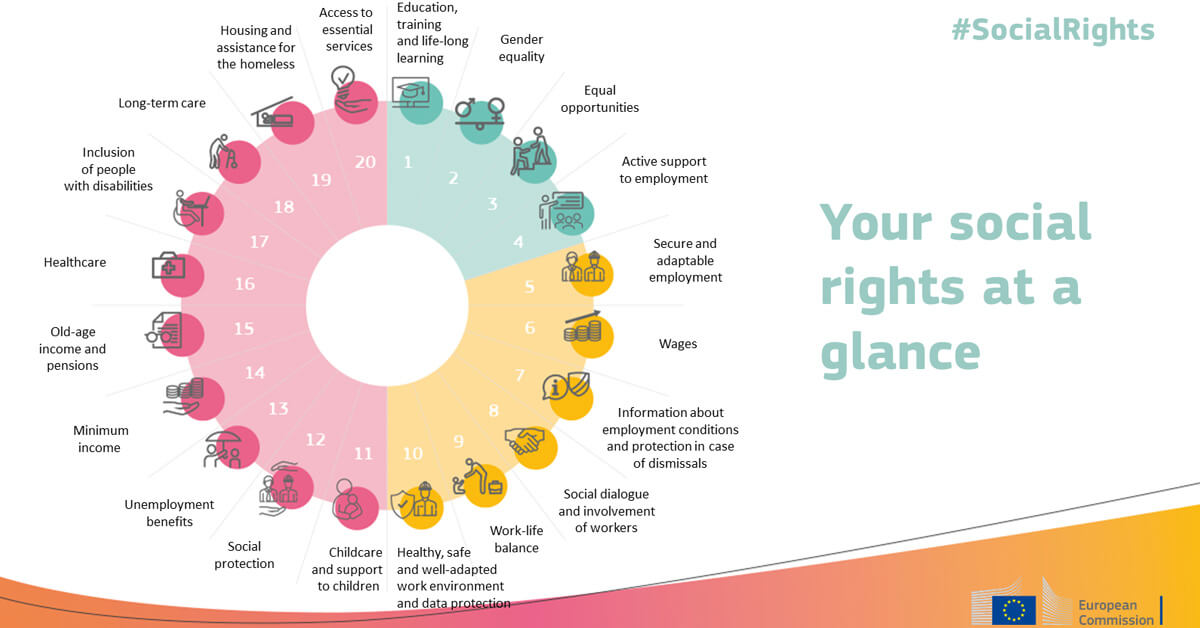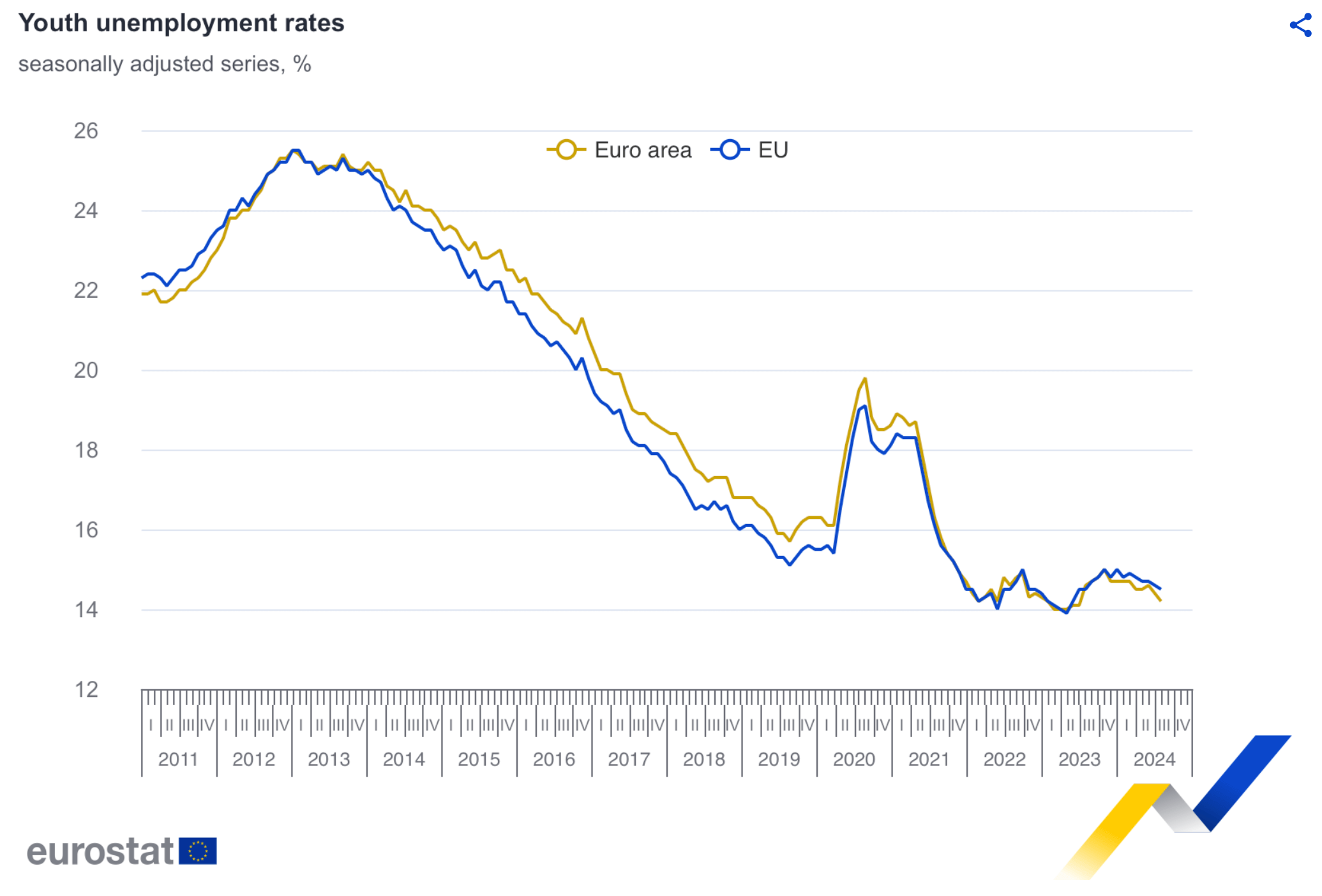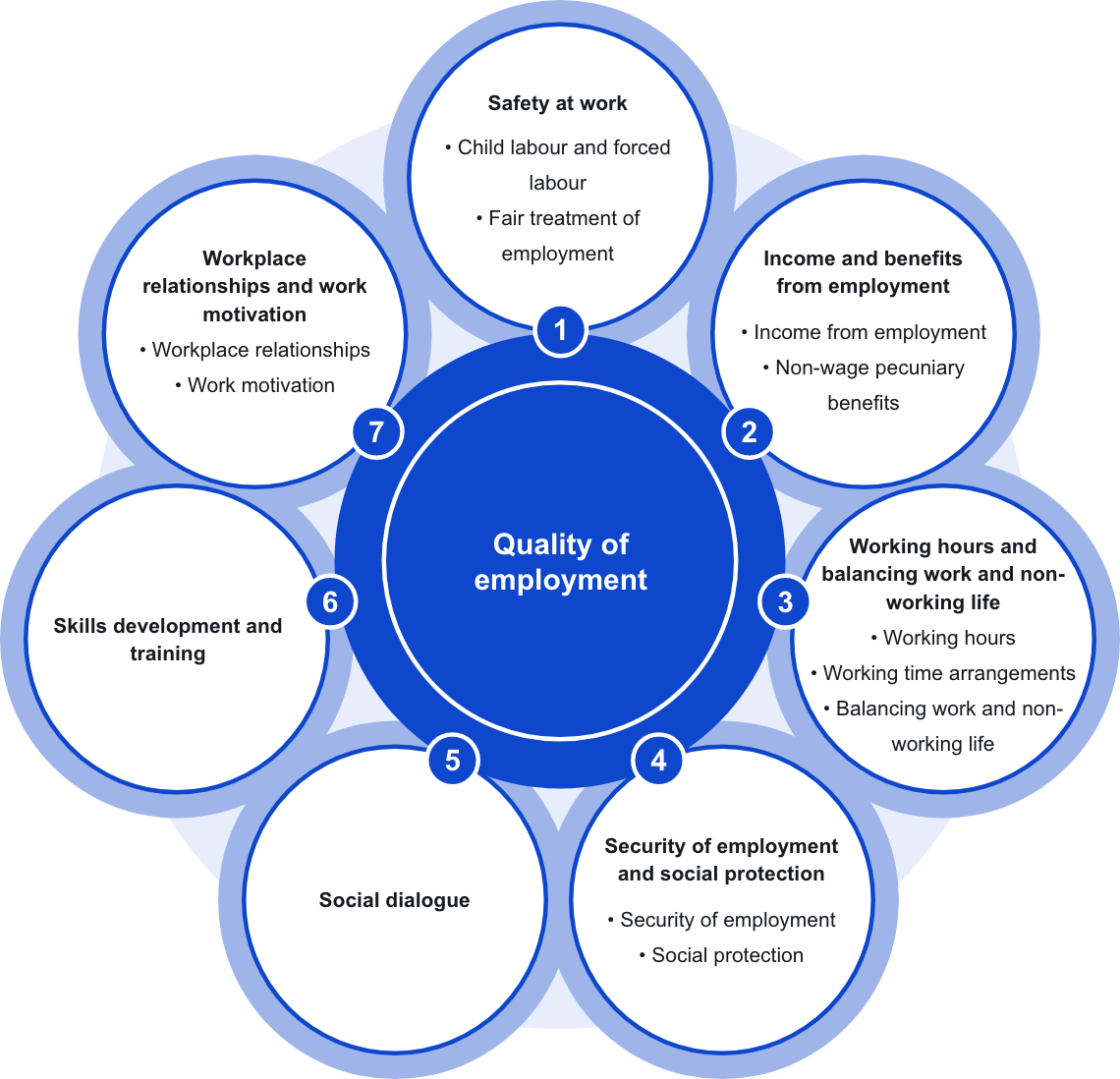While EU unemployment continues a downward trend, concerns over job quality and youth struggles persist
The European Union continues to witness a steady decline in unemployment. Eurostat figures are revealing a seasonally adjusted unemployment rate of 6.0% across the EU and 6.4% within the euro area in July 2024.

These figures mark slight improvements from June 2024 and show a broader trend of gradual recovery over the past year. European leaders and managers celebrate this data but also express growing concerns about the quality of employment and the economic challenges facing the younger generation of workers and managerial staff.
Worldwide, for the quality of work to be monitored and enhanced, some international standards have been created and are being taken into account by policymakers and social partners, as labour markets are evolving and the conditions of employment are continuously changing.
Initiatives and international consensus such as those gathered at the Handbook on Measuring Quality of Employment: A statistical framework prepared by the Expert Group on Measuring Quality of Employment at the United Nations are very relevant.
Since the European Pillar of Social Rights entered into force, there has been a slow but steady increase in employment rates in the European Union
Among the many international indicators that measure the quality of employment, the United Nations – UNECE puts the European Pillar of Social Rights at the top. This is because the European Pillar of Social Rights highlights employment quality with its main dimensions of equal access to employment and fair working conditions.

Since the European Pillar of Social Rights was approved and its 20 principles entered into force, there has been a slow but steady decrease in unemployment rates in the European Union, despite some small increase in 2021. According to Eurostat, approximately 13.108 million people in the EU, including 10.990 million in the euro area, were unemployed in July 2024.
This represents a decrease of 82,000 in the whole EU (EU27) and 114,000 in the Euro area (EU20) compared to the previous month. Over the year, unemployment fell by 72,000 in the EU and 190,000 in the euro area, indicating a positive trajectory for the European labour market.
Many salaries are insufficient to meet the rising costs of living
However, CEC European Managers, as a key social partner of the European Commission, is cautious about these figures. While acknowledging the progress made, CEC highlights the persistent job quality concerns and the inadequacy of wages, particularly for young employees.

Many salaries are insufficient to meet the rising costs of living, such as housing. Also, due to the shortage of skills, many newly appointed managers and leaders face duties and workloads for which they require better training, as they are key actors and can make a difference in helping employment processes.
Yong managers and youth unemployment: A mixed picture
In the EU, the youth unemployment rate, covering those under 25, stood at 14.5% (EU27) and 14.2% (EU20) in July 2024. While these figures represent a slight decrease from June 2024, they underscore the ongoing challenges young people face in the labour market.
In the EU, youth unemployment decreased by 25,000 in July 2024, but compared to the previous year, there was an increase of 8,000. In contrast, the euro area saw a decrease of 37,000 in youth unemployment from June 2024 and a significant drop of 66,000 compared to July 2023.
CEC European Managers warn that young workers remain particularly vulnerable. The current rates of youth unemployment are still high, and combined with precarious job conditions and low wages, they are creating a generation that struggles to gain a secure footing in the economy. The lack of affordable housing is particularly problematic.
Other areas of improvement have to do with the quality of internships. The European Commission, through the EU Social Dialogue, and the rest of EU institutions are working for the EU’s 2014 Quality Framework for Traineeships, that sets out 21 quality principles for traineeships that Member States are recommended to put into practice to ensure high-quality learning and working conditions.
Many young leaders and managers find that their salaries cannot keep pace with rent and property prices.

Gender Disparities in Unemployment
Unemployment rates continue to show slight gender disparities across the European Union. In July 2024, the unemployment rate for women was 6.1%, a slight decrease from June’s 6.2%, while the rate for men remained stable at 5.8%.
In the euro area, the unemployment rate for women was 6.6%, down from 6.7% the previous month, and the rate for men was 6.2%, unchanged from June 2024. These figures suggest that while overall unemployment is declining, women are benefiting from this trend slightly more than men.
Women might be benefiting from the current unemployment trend slighty more than men

Broader Labour Market considerations
Eurostat‘s unemployment figures are based on the International Labour Organisation’s (ILO) standard definition, which focuses on people without a job who have been actively seeking work in the last four weeks and are available to start within two weeks.
CEC European Managers emphasize that these figures alone do not fully capture the complexity of the labor market. There is a need for additional indicators, such as underemployment, the number of part-time workers seeking full-time employment, and those who are available to work but are not actively seeking jobs.
As the EU Commission prepares to release Labor Force Survey (LFS) data for the second quarter of 2024 later this month, these additional metrics will be crucial in providing a more comprehensive view of the labor market’s health.
We must look beyond headline unemployment figures to understand the real state of employment in Europe. Only then can we address the underlying issues and ensure that economic recovery benefits all workers, especially the younger generation of leaders and managers.
Positive trends in EU unemployment could be tempered by persistent concerns over job quality and youth employment. As Europe navigates these challenges, the focus will likely shift towards not just creating jobs, but ensuring that these jobs offer a sustainable livelihood for all employees.











